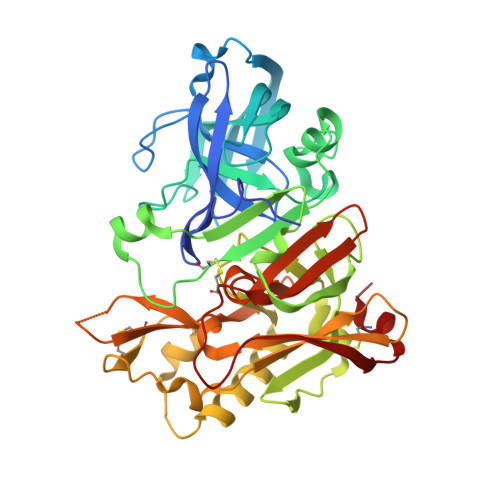Discovery of an Orally Available, Brain Penetrant BACE1 Inhibitor That Affords Robust CNS A(beta) Reduction
Stamford, A.W., Scott, J.D., Li, S.W., Babu, S., Tadesse, D., Hunter, R., Wu, Y., Misiaszek, J., Cumming, J.N., Gilbert, E.J., Huang, C., McKittrick, B.A., Hong, L., Guo, T., Zhu, Z., Strickland, C., Orth, P., Voigt, J.H., Kennedy, M.E., Chen, X., Kuvelkar, R., Hodgson, R., Hyde, L.A., Cox, K., Favreau, L., Parker, E.M., Greenlee, W.J.(2012) ACS Med Chem Lett 3: 897-902
- PubMed: 23412139
- DOI: https://doi.org/10.1021/ml3001165
- Primary Citation of Related Structures:
4FRS - PubMed Abstract:
Inhibition of BACE1 to prevent brain Aβ peptide formation is a potential disease-modifying approach to the treatment of Alzheimer's disease. Despite over a decade of drug discovery efforts, the identification of brain-penetrant BACE1 inhibitors that substantially lower CNS Aβ levels following systemic administration remains challenging. In this report we describe structure-based optimization of a series of brain-penetrant BACE1 inhibitors derived from an iminopyrimidinone scaffold. Application of structure-based design in tandem with control of physicochemical properties culminated in the discovery of compound 16, which potently reduced cortex and CSF Aβ40 levels when administered orally to rats.
- Department of Medicinal Chemistry, Merck Research Laboratories, 2015 Galloping Hill Road, Kenilworth, NJ 07033, USA.
Organizational Affiliation:

















